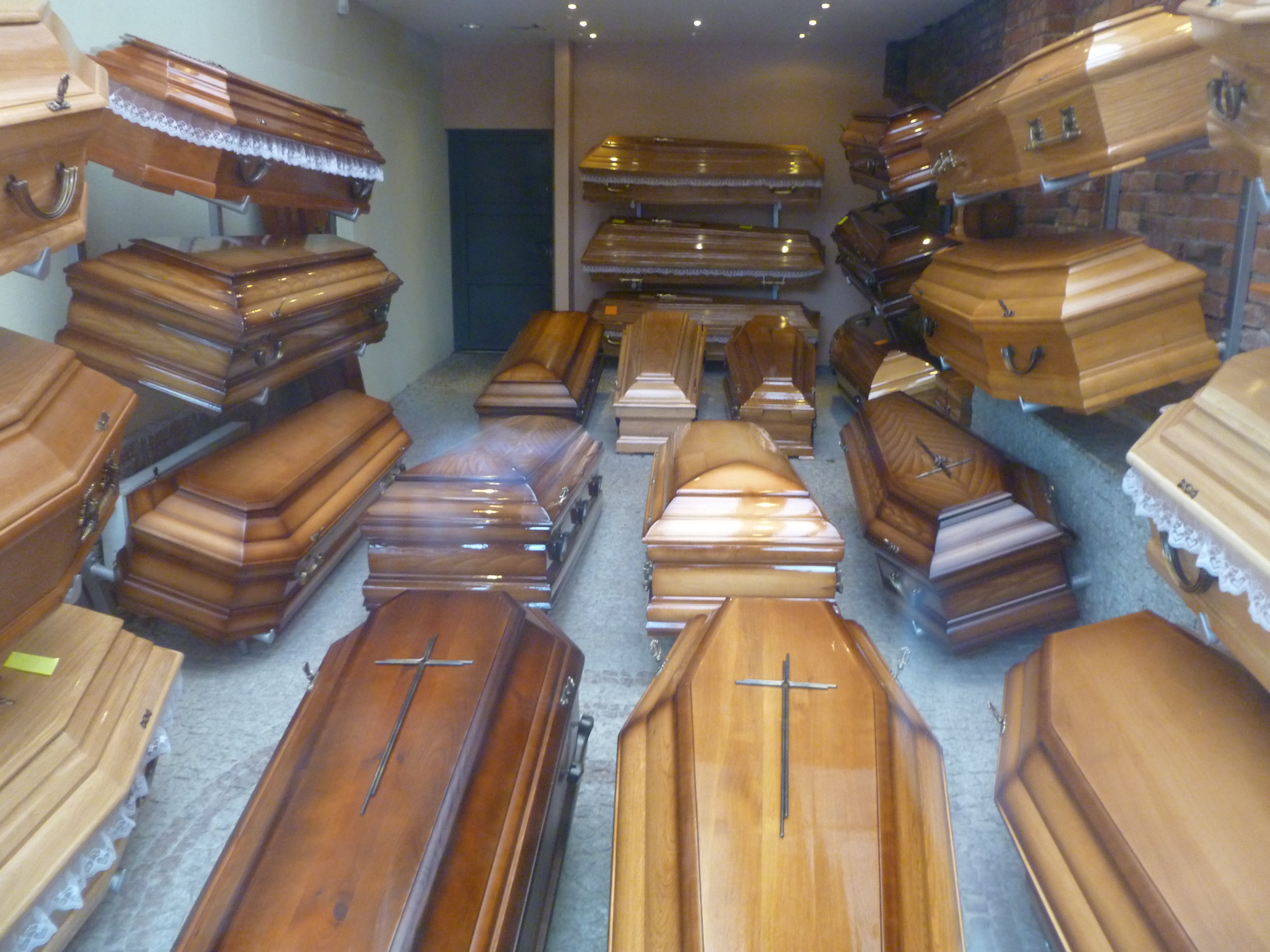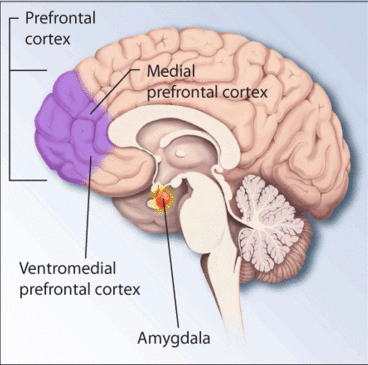|
Necrophobia
Necrophobia is a specific phobia, the irrational fear of dead organisms (e.g., corpses) as well as things associated with death (e.g., coffins, tombstones, funerals, cemeteries). With all types of emotions, obsession with death becomes evident in both fascination and objectification. In a cultural sense, necrophobia may also be used to mean a fear of the dead by a cultural group, e.g., a belief that the spirits of the dead will return to haunt the living. The sufferer may experience this sensation all the time, or when something triggers the fear, like a close encounter with a dead animal or the funeral of a loved one or friend. The word ''necrophobia'' is derived from the Greek ''nekros'' ( νεκρός) for "corpse" and the Greek ''phobos'' ( φόβος) for "fear". See also *List of phobias The English suffixes -phobia, -phobic, -phobe (from Greek φόβος ''phobos'', "fear") occur in technical usage in psychiatry to construct words that describe irrational, abno ... [...More Info...] [...Related Items...] OR: [Wikipedia] [Google] [Baidu] |
List Of Phobias
The English suffixes -phobia, -phobic, -phobe (from Greek φόβος ''phobos'', "fear") occur in technical usage in psychiatry to construct words that describe irrational, abnormal, unwarranted, persistent, or disabling fear as a mental disorder (e.g. agoraphobia), in chemistry to describe chemical aversions (e.g. hydrophobic), in biology to describe organisms that dislike certain conditions (e.g. acidophobia), and in medicine to describe hypersensitivity to a stimulus, usually sensory (e.g. photophobia). In common usage, they also form words that describe dislike or hatred of a particular thing or subject (e.g. homophobia). The suffix is antonymic to -phil-. For more information on the psychiatric side, including how psychiatry groups phobias such as agoraphobia, social phobia, or simple phobia, see phobia. The following lists include words ending in ''-phobia'', and include fears that have acquired names. In some cases, the naming of phobias has become a word game, of not ... [...More Info...] [...Related Items...] OR: [Wikipedia] [Google] [Baidu] |
Specific Phobia
Specific phobia is an anxiety disorder, characterized by an extreme, unreasonable, and irrational fear associated with a specific object, situation, or concept which poses little or no actual danger. Specific phobia can lead to avoidance of the object or situation, persistence of the fear, and significant distress or problems functioning associated with the fear. A phobia can be the fear of anything. Although fears are common and normal, a phobia is an extreme type of fear where great lengths are taken to avoid being exposed to the particular danger. Phobias are considered the most common psychiatric disorder, affecting about 10% of the population in the US, according to the Diagnostic and Statistical Manual of Mental Disorders, Fifth Edition (DSM-5), (among children, 5%; among teens, 16%). About 75% of patients have more than one specific phobia. It can be described as when patients are anxious about a particular situation. It causes a great load of difficulty in life. Patient ... [...More Info...] [...Related Items...] OR: [Wikipedia] [Google] [Baidu] |
Coffin
A coffin is a funerary box used for viewing or keeping a corpse, either for burial or cremation. Sometimes referred to as a casket, any box in which the dead are buried is a coffin, and while a casket was originally regarded as a box for jewelry, use of the word "casket" in this sense began as a euphemism introduced by the undertaker's trade. A distinction is commonly drawn between "coffins" and "caskets", using "coffin" to refer to a tapered hexagonal or octagonal (also considered to be anthropoidal in shape) box and "casket" to refer to a rectangular box, often with a split lid used for viewing the deceased as seen in the picture. Receptacles for cremated and cremulated human ashes (sometimes called cremains) are called urns. Etymology First attested in English in 1380, the word ''coffin'' derives from the Old French , from Latin , which means ''basket'', which is the latinisation of the Greek κόφινος (''kophinos''), ''basket''. The earliest attested form of the word ... [...More Info...] [...Related Items...] OR: [Wikipedia] [Google] [Baidu] |
Funeral
A funeral is a ceremony connected with the final disposition of a corpse, such as a burial or cremation, with the attendant observances. Funerary customs comprise the complex of beliefs and practices used by a culture to remember and respect the dead, from interment, to various monuments, prayers, and rituals undertaken in their honor. Customs vary between cultures and religious groups. Funerals have both normative and legal components. Common secular motivations for funerals include mourning the deceased, celebrating their life, and offering support and sympathy to the bereaved; additionally, funerals may have religious aspects that are intended to help the soul of the deceased reach the afterlife, resurrection or reincarnation. The funeral usually includes a ritual through which the corpse receives a final disposition. Depending on culture and religion, these can involve either the destruction of the body (for example, by cremation or sky burial) or its preservation (for examp ... [...More Info...] [...Related Items...] OR: [Wikipedia] [Google] [Baidu] |
Cemeteries
A cemetery, burial ground, gravesite or graveyard is a place where the remains of dead people are buried or otherwise interred. The word ''cemetery'' (from Greek , "sleeping place") implies that the land is specifically designated as a burial ground and originally applied to the Roman catacombs. The term ''graveyard'' is often used interchangeably with cemetery, but a graveyard primarily refers to a burial ground within a churchyard. The intact or cremated remains of people may be interred in a grave, commonly referred to as burial, or in a tomb, an "above-ground grave" (resembling a sarcophagus), a mausoleum, columbarium, niche, or other edifice. In Western cultures, funeral ceremonies are often observed in cemeteries. These ceremonies or rites of passage differ according to cultural practices and religious beliefs. Modern cemeteries often include crematoria, and some grounds previously used for both, continue as crematoria as a principal use long after the interment areas ... [...More Info...] [...Related Items...] OR: [Wikipedia] [Google] [Baidu] |
Dead Body
A cadaver or corpse is a dead human body that is used by medical students, physicians and other scientists to study anatomy, identify disease sites, determine causes of death, and provide tissue to repair a defect in a living human being. Students in medical school study and dissect cadavers as a part of their education. Others who study cadavers include archaeologists and arts students. The term ''cadaver'' is used in courts of law (and, to a lesser extent, also by media outlets such as newspapers) to refer to a dead body, as well as by recovery teams searching for bodies in natural disasters. The word comes from the Latin word ''cadere'' ("to fall"). Related terms include ''cadaverous'' (resembling a cadaver) and ''cadaveric spasm'' (a muscle spasm causing a dead body to twitch or jerk). A cadaver graft (also called “postmortem graft”) is the grafting of tissue from a dead body onto a living human to repair a defect or disfigurement. Cadavers can be observed for their stag ... [...More Info...] [...Related Items...] OR: [Wikipedia] [Google] [Baidu] |
φόβος
Phobos (Greek for "fear") most commonly refers to: * Phobos (moon), a moon of Mars * Phobos (mythology), the Greek god and personification of fear and panic Phobos may also refer to: Comics * Phobos (Marvel Comics) * Phobos (''W.I.T.C.H.''), a character from ''W.I.T.C.H.'' Computer programming * Project Phobos, a Java-based web application environment * A runtime and standard library of D programming language Other uses * ''Phobos'' (album), a 1997 album by Voivod * ''Phobos'' (audio drama), a 2007 audio drama based on ''Doctor Who'' * Phobos (launch platform), a floating launch platform being refit by SpaceX * PHOBOS experiment, a nuclear physics experiment * Phobos program, a Soviet space program of the late 1980s * USS ''Phobos'' (AK-129), a World War II U.S. Navy ''Crater''-class cargo ship * Huitzil or Phobos, a character in the ''Darkstalkers'' game series See also * Phobos Grunt Fobos-Grunt or Phobos-Grunt (russian: link=no, Фобос-Грунт, where ''г� ... [...More Info...] [...Related Items...] OR: [Wikipedia] [Google] [Baidu] |
Fear
Fear is an intensely unpleasant emotion in response to perceiving or recognizing a danger or threat. Fear causes physiological changes that may produce behavioral reactions such as mounting an aggressive response or fleeing the threat. Fear in human beings may occur in response to a certain stimulus occurring in the present, or in anticipation or expectation of a future threat perceived as a risk to oneself. The fear response arises from the perception of danger leading to confrontation with or escape from/avoiding the threat (also known as the fight-or-flight response), which in extreme cases of fear (horror and terror) can be a freeze response or paralysis. In humans and other animals, fear is modulated by the process of cognition and learning. Thus, fear is judged as rational or appropriate and irrational or inappropriate. An irrational fear is called a phobia. Fear is closely related to the emotion anxiety, which occurs as the result of threats that are perceived to b ... [...More Info...] [...Related Items...] OR: [Wikipedia] [Google] [Baidu] |
Phobias
A phobia is an anxiety disorder defined by a persistent and excessive fear of an object or situation. Phobias typically result in a rapid onset of fear and are usually present for more than six months. Those affected go to great lengths to avoid the situation or object, to a degree greater than the actual danger posed. If the object or situation cannot be avoided, they experience significant distress. Other symptoms can include fainting, which may occur in blood or injury phobia, and panic attacks, often found in agoraphobia. Around 75% of those with phobias have multiple phobias. Phobias can be divided into specific phobias, social anxiety disorder, and agoraphobia. Specific phobias are further divided to include certain animals, natural environment, blood or injury, and particular situations. The most common are fear of spiders, fear of snakes, and fear of heights. Specific phobias may be caused by a negative experience with the object or situation in early childhood. Social ... [...More Info...] [...Related Items...] OR: [Wikipedia] [Google] [Baidu] |





